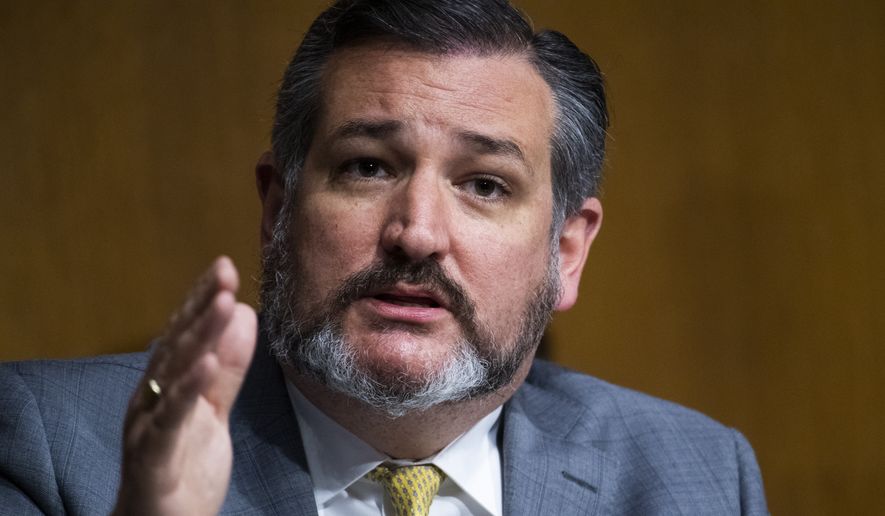Sen. Ted Cruz, chairman of a Senate subcommittee with oversight of constitutional rights, is sending a letter Wednesday warning Google that it may face repercussions if it follows through with punishing a conservative website over its content.
The Texas Republican accused the internet giant of hypocrisy in targeting The Federalist, the conservative site, for offensive comments posted on its stories, even as Google’s own platform, YouTube, has similarly offensive comments.
Mr. Cruz said Google has long insisted it is protected by Section 230 of the Communications Decency Act, which allows internet companies to claim they are pass-throughs and not responsible for the content users post online. But Mr. Cruz wondered why Google wasn’t treating The Federalist the same way.
“It is also deeply ironic that Google is financially punishing a website for speech that appears on its platform,” the senator wrote in the letter.
Initially, reports had suggested Google had banned The Federalist from its advertising network — what’s known as demonetizing. Google says it only put the site on notice that it could face penalties.
The media outlet was flagged by several fact-checking outfits Google says it trusts to police news.
In explaining its decision, Google said it found comments made on Federalist articles to be dangerous or offensive, and demanded the comment section be removed.
“Our policies do not allow ads to run against dangerous or derogatory content, which includes comments on sites, and we offer guidance and best practices to publishers on how to comply,” the company said on Twitter.
That drew the rebuke from Mr. Cruz, who as chairman of the Constitution subcommittee on the Senate Judiciary Committee requested Google turn over any communications it’s had with the fact-checkers about The Federalist. He also asked Google to say whether it’s policed the comment section of left-wing organizations.
“Will Google apply the same standards to all media organizations, or just those with which it has political disagreements?” the senator wondered.
In his parting shot, Mr. Cruz suggested Google may face punishment as an illegal monopoly under the Sherman Act. That was landmark legislation passed to bust the big monopolies in the late 1800s.
Mr. Cruz suggested that if Google is treating YouTube, its own media platform, differently than other outlets, that could be inconsistent with the law.
• Stephen Dinan can be reached at sdinan@washingtontimes.com.




Please read our comment policy before commenting.